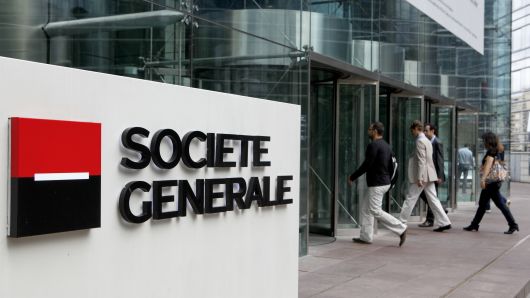OFAC Takes Aggressive Action Against Venezuela
On May 18, 2017, acting pursuant to Executive Order 13692, the U.S. Department of the Treasury’s Office of Foreign Assets Control (OFAC) designated eight (8) members of Venezuela’s Supreme Court of Justice for judicial decisions that allegedly “usurped the authority of Venezuela’s democratically-elected legislature, the National Assembly, including by allowing the Executive Branch to rule through emergency decree, thereby restricting the rights and thwarting the will of the Venezuelan people.” As a result of the designation, U.S. persons are prohibited from engaging in transactions with the designees, and all assets held by the judges within the United States or within the possession or control of a U.S. person are blocked.
Not surprisingly, OFAC’s action was not greeted positively by the Government of Venezuela. Venezuelan Foreign Minister Delcy Rodriguez condemned OFAC’s announcement, writing on Twitter: “It’s outrageous and unacceptable for the United States to impose sanctions on a sovereign and independent nation in violation of Venezuelan and international laws.” Following OFAC’s designation of Venezuela’s Vice President Tareck El Aissami under the Foreign Narcotics Kingpin Designation Act a few months ago, the Venezuelan government had delivered an official letter of protest to the U.S. charge d’affaires in Venezuela – the letter being addressed to OFAC. The Vice President also more notably took out a full-page ad in the New York Times at the time addressed to Treasury Secretary Steven Mnuchin.
Certainly, OFAC had the authority to impose sanctions in this case, as several designation criteria may have served as the legal basis for the designations. For purposes relevant here, E.O. 13692 permits the Secretary of the Treasury, acting in consultation with the Secretary of State, to designate any person determined to be responsible for or complicit in, or responsible for ordering, controlling, or otherwise directing, or to have participated in, directly or indirectly, (1) actions or policies that undermine democratic processes or institutions in Venezuela; (2) conduct that constitutes a serious abuse or violation of human rights, including against persons involved in antigovernment protests in Venezuela in or since February 2014; (3) actions that prohibit, limit, or penalize the exercise of freedom of expression or peaceful assembly in Venezuela. Moreover, E.O. 13692 permits the Secretary of the Treasury to impose sanctions on persons determined to be current or former officials of the Venezuelan government. Any one of these designation criteria – alone or combined – may have served as the legal basis for OFAC’s action.
But despite having the legal authority to sanction the judges, OFAC’s action is nonetheless surprising, at least when considering just how aggressive the decision to designate members of the Venezuelan high court is. It is not typical fare for OFAC to impose sanctions on members of a foreign state’s judicial branch for what the U.S. government perceives as being unconstitutional action that “usurps” the authority of another branch of the constitutional government. Certainly, I have not run across a case where OFAC’s action so deliberately took sides (or, some might say, “interfered”) in the midst of a constitutional struggle between two branches of a foreign State’s government.
For instance, OFAC cited as evidence of the Venezuelan high court’s usurpation of legislative authority a series of decisions over the past year in which the court either interpreted the Venezuelan constitution to disfavor legislative prerogative or interfered with that legislative prerogative itself. In October 2016, as an example, the court ruled that the Executive Branch “was exempt from submitting the [national] budge to the National Assembly [legislature] and ruled that the budget would instead be submitted to the [court itself].” Moreover, the court had issued renewals of the state of emergency, “a function that allows for the temporary restriction of constitutional rights, at the request of the Executive Branch.”
Clearly, there is an ongoing civil struggle in Venezuela – one in which the constitutional foundations of the Venezuelan government appear to be at risk. But OFAC’s action appears to revolve around what it believes are decisions of the Venezuelan high court – none of which OFAC alleges are in and of themselves “unconstitutional” – that interpret constitutional principles in ways that disfavor the Venezuelan legislature. That is an unprecedented move for OFAC and one that more deeply involves the agency in Venezuela’s internal politics.



